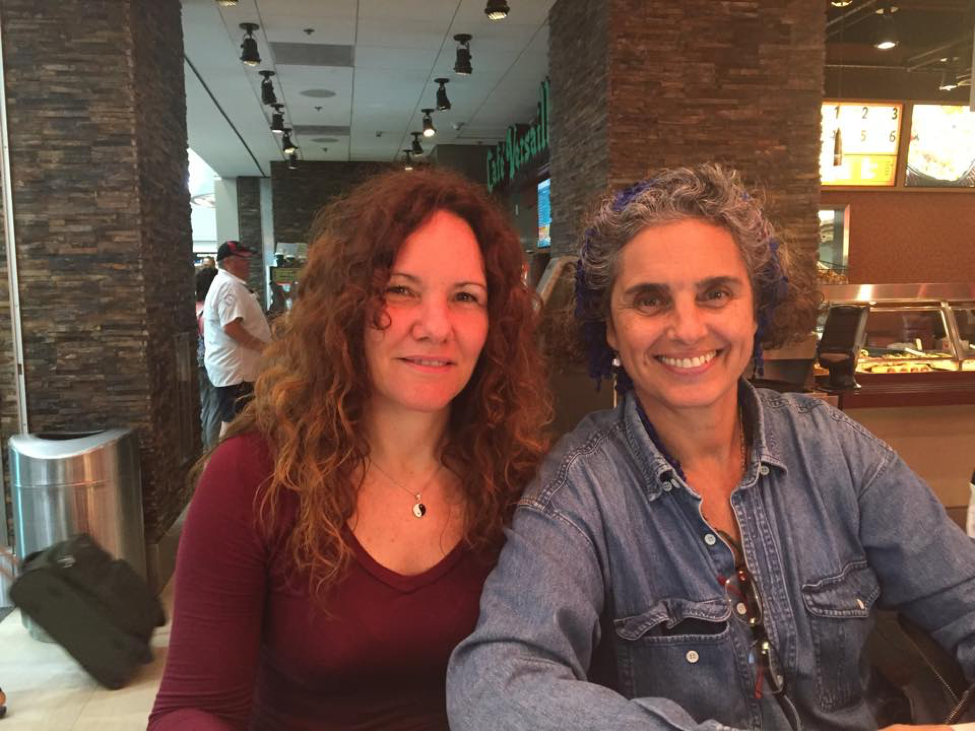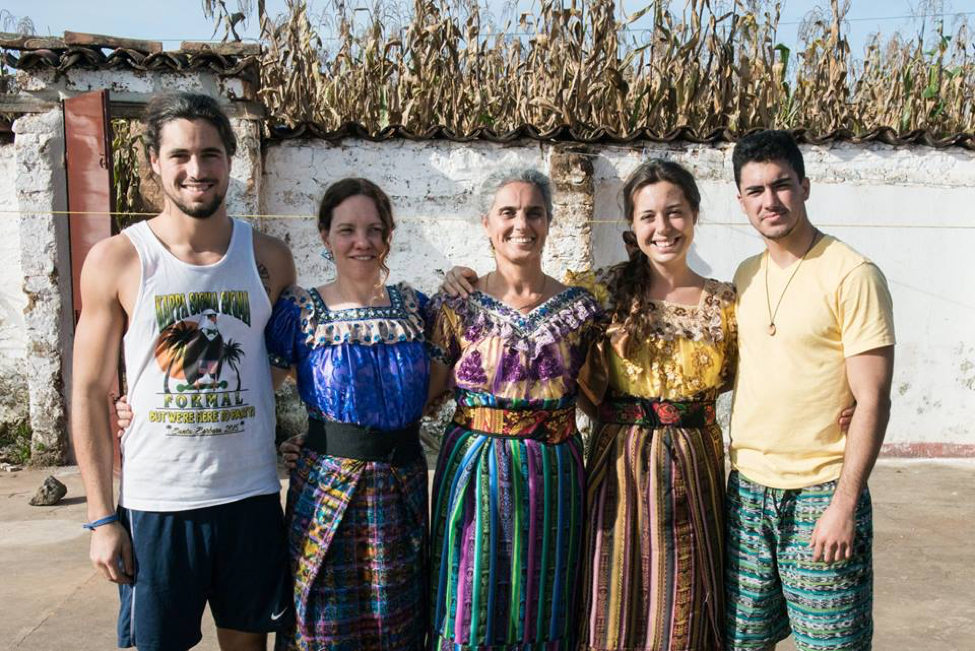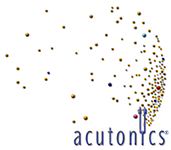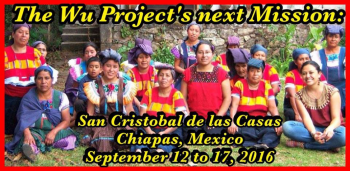Ellen F. Franklin, PhD
If we were to pick anyone who exemplifies the type of person Acutonics embodies (or attracts, or “produces”), we’d have to put Dr. Alicia Villamarin at the top of the list. Feisty, focused, and feeling-y, Alicia is not only a Certified Acutonics® Practitioner, a licensed acupuncture physician (nationally certified by the National Certification Commission for Acupuncture and East Asian Medicine), and a master in East Asian Medicine—along with a BS in health sciences from Fort Lauderdale’s Atlantic Institute of East Asian Medicine, a BS in Biology from the University of Seville in her home country of Spain, and a PhD in cell and molecular biology from New York University Medical Center—she’s a Reiki master, a yoga teacher, and a licensed master clinical hypnotherapist.
She’s also the cofounder, with Dr. Maria Romero, of The WU Project. Founded only two years ago and dedicated to bringing health care and hope to remote, underserved regions of the world, the WU Project, a 501(c)3 nonprofit, has already brought Acutonics, Chinese medicine, and integrative medicine to people in the Upper Mustang of Nepal and the Mayan communities of the K’iche’ in Guatemala.
In less than two weeks, Alicia and Maria, along with a group of volunteers, will be heading down to Chiapas, Mexico for 10 days. “We teach a barefoot acupuncture curriculum with the 8 Extraordinary Vessels, and other Chinese medicine and integrative medicine modalities,” says Alicia, who has her own practice, at Full Moon Acupuncture and Healing Arts Center, in Miami, Florida. “With the Acutonics, we only use two Ohm forks, and it is always a hit. The students love the forks, once they feel them and hear them, they can’t get enough of it.”
As part of how they do things at WU, they’ll be returning to Chiapas in three to four months for a follow-up with the people they’ve worked with, treated, and taught. That return trip will come about a month or so before they venture down to Cuba, where a friend of Maria's, a Protestant priest, has asked them to come down and train some of his chaplains, who serve in the prisons. “It’s non-somatic training we’ll be doing,” explains Alicia. “We’re going to give the prisoners tools for better psychological and spiritual lives while they’re incarcerated.” And after that trip, they’ll be venturing to one of the Tibetan refugee camps in India.)
A self-professed born teacher who has found her true calling in the WU Project, Alicia had volunteered for other service-work organizations, but found them frustrating. “I also thought, so we’re going in there, to treat people for just a little while and then what? What happens when we leave? What legacy are we leaving? There was something big missing.”
 She’d met Maria about ten years ago, but didn’t get a chance to connect. They crossed paths again when the organizer of one of Maria’s trips to Nepal told her to go back home, find help, and come back to train his people. “And I know how to train people,” says Alicia. “And I told Maria, Let’s join forces. She’s Cuban but introverted. And I’m a born teacher. It was a match made in heaven.”
She’d met Maria about ten years ago, but didn’t get a chance to connect. They crossed paths again when the organizer of one of Maria’s trips to Nepal told her to go back home, find help, and come back to train his people. “And I know how to train people,” says Alicia. “And I told Maria, Let’s join forces. She’s Cuban but introverted. And I’m a born teacher. It was a match made in heaven.”
Knowing ahead of time, based on experience, just how tough and taxing these trips can be, they prepare for months, and make sure to pick the right people as volunteers, and, just as importantly, make no bones about what’s expected of the people they’re there to teach and serve.
They send out a memorandum of understanding ahead of time to the local coordinators—“So that there are no misunderstandings,” emphasizes Alicia—and while they try to have as solid a structure in place as possible, they also stay flexible. Very flexible. After all, these are places where they often never see any other Westerners. “Our mantra is,” says Alicia, who has taken her three kids with her as volunteers all teenagers. “Om Flexi Om.
“I plan and God laughs—hysterically—at me!” she laughs. “When people say, Hey, where’s your Plan B? We tell them, There is no Plan B. Or C. Or D, E, F, or on down to Z. It’s Tibetan Time. Or Nepali Time. Or Mayan Time. We cannot, should not, would not impose our Western perception on them, on their land. And that’s often a big hurdle with the volunteers.”
But they’re also just as straight with their hosts. “We need to make them work, at least a little, for what we give them,” explains Alicia. In their experience with the Non-Governmental Organizations [NGOs]—well-intentioned NGOs often create the so-called NGO mentality. They create entitlement. We ask them to provide the meals while we are teaching, the venue for the class and public clinic, and help with the local organization and transportation. Their efforts give value to the program. And they literally tell us afterward, Because we had to make an effort, we valued it more.”
What they do, though, has nothing to do with religion and everything to do with giving people the means to better themselves. “This is Chinese medicine and we go to pains to be respectful of their traditions and belief systems,” says Alicia. “We start by explaining that what we teach is a medicine based on a philosophy that has nothing to do with religion. But 100 percent of the time, our teachings go along with their beliefs. We’ve never had a problem with them accepting our Chinese medicine teachings.”
What distinguishes WU from other organizations is that they provide the training and tools to empower local health-care providers with what they need in order to incorporate the fundamentals of Chinese medicine and Acutonics into the care they provide.
Alicia and Maria and the WU volunteers teach the local care providers to operate independently, so that after WU has returned home, they have the know-how to do the  work themselves. They’re self-reliant. In contrast, what Alicia found so frustrating with the other organizations she’d worked with was this aspect of not empowering the people they’d served with being able to carry on what they’d learned. “We’re empowering these people,” says Alicia. “We’re not just swooping in and flying back out. And then we come back several months later to check up on them.”
work themselves. They’re self-reliant. In contrast, what Alicia found so frustrating with the other organizations she’d worked with was this aspect of not empowering the people they’d served with being able to carry on what they’d learned. “We’re empowering these people,” says Alicia. “We’re not just swooping in and flying back out. And then we come back several months later to check up on them.”
The WU Project is a model of sustainability. And the people they train come from all different modalities. There’s no judging of who can or who shouldn’t participate. The WU folks bring in as many local care providers as they can.
The Project has taught her plenty not just about other people and herself, it has given her insights on people overall. Their differences, their similarities. Their seemingly limitless abilities to just deal with what they’ve been dealt (whether it’s political or dietetic—from avoiding death squads to living on little but cooked grass day in and day out). “I’ve learned so much from these people,” says Alicia—acknowledging that not all of these people are as pure and giving as so many Western visitors like to paint them. “Their resilience for one. Maria and I would run to the cornfields and cry sometimes. But they just keep going. I would’ve shot myself. They have so much heart.”
And no matter their overall personality, they’ve also shifted her teaching methods. “I’ve learned that the smarter the person, the simpler I talk,” admits Alicia. “Most of the people we’ve worked with in these places, they’re very kinesthetic. They are much more into pictures and touching and experience. They learn by touch and by doing. So we do a lot of exercises and hands-on learning and teaching.”
It’s also tapped into who she really is. “This is my nature—helping other people,” says Alicia. “I like myself a little bit more when I’m doing this. I found what I’m good at.”
Dr. Alicia Villamarin and Dr. Maria Romero and their volunteers will be leaving for Chiapas September 9th. They hope to bring 25 sets of Ohm Unison tuning forks with them on this mission. If you would like to donate forks to the WU Project (for this trip or any other), you may contact Dr. Villamarin at the website or number below, or purchase the forks at 40% off retail from Acutonics, just call our office at 575-587-2689, and we will consolidate the donations along with other forks that we here at Acutonics will donate. We will also cover the shipping costs and send them to the WU Project. Here is the contact info for the WU Project

